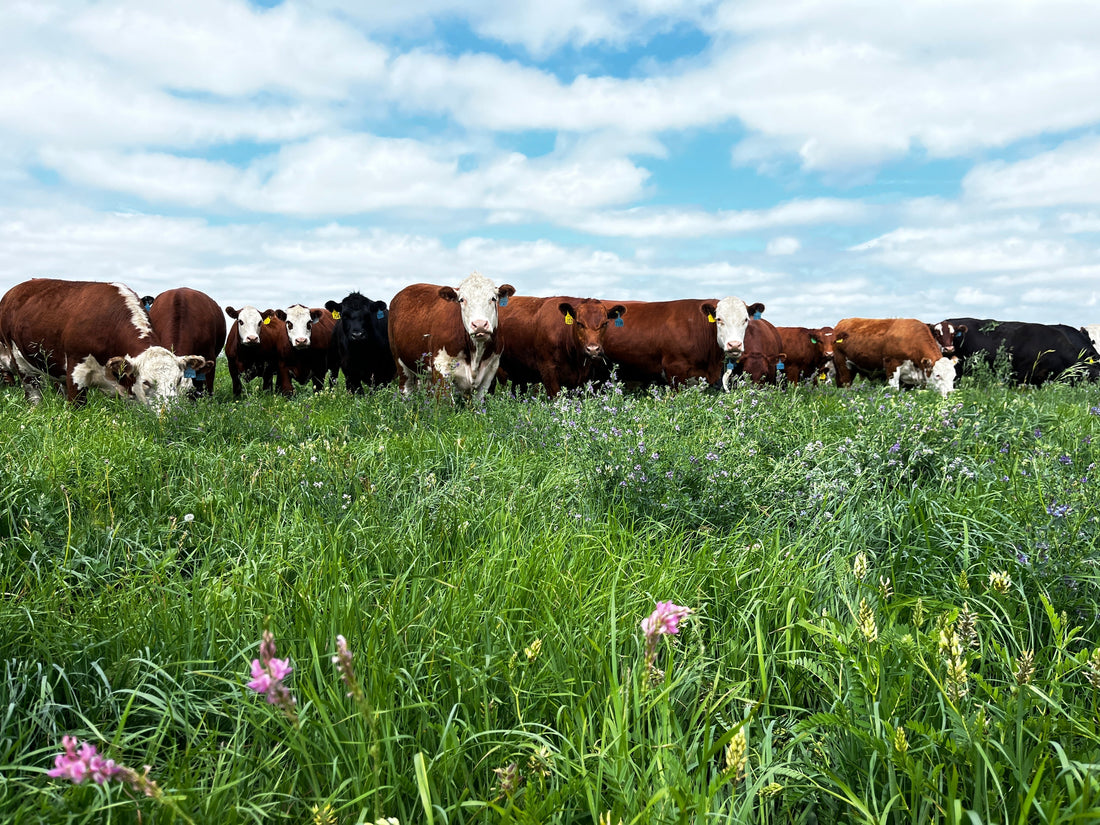When it comes to beef, the terms "grain-fed" and "grass-fed" are often used, but what do they really mean, and how do they affect the quality of the meat? Is grass-fed beef truly superior? Recent research sheds light on these questions, revealing significant differences that impact not only the flavor and nutritional profile but also the overall quality of the beef.
Recent research led by Dr. Stephan Van Vliet has provided an in-depth analysis of grass-fed versus grain-fed beef, focusing on a range of nutritional and metabolic factors. The study aimed to understand how different feeding practices impact the quality of beef by examining samples from various U.S. farms.
Key elements of the research included:
- Comprehensive Data Collection: Researchers collected and analyzed data from soil, plants, animal feces, and beef samples. This thorough approach allowed them to evaluate not just the nutritional content of the meat but also the health of the soil and plants that contribute to the animal’s diet.
- Nutritional Profiling: The study assessed fatty acids, amino acids, vitamins, phytochemicals, and oxidative stress markers in the beef. This profiling revealed substantial differences in the nutritional quality between grass-fed and grain-fed beef.
-
Benchmarking Against Grain-Fed Beef: The results were compared with data from conventional feedlot beef, sourced from the Nutrient Density Project database, to highlight differences in nutrient profiles.
Key Findings:
- Higher Phytonutrient Levels: Grass-fed beef contains significantly higher levels of beneficial phytonutrients such as Hippurate, Cinnamoylglycine, and Ergothioneine. These compounds have antioxidant and anti-inflammatory properties that contribute to better health outcomes. Many phytonutrients contribute to our bodies defense against autoimmune diseases and even fighting cancer cells.
- Increased Vitamins: Grass-fed beef is richer in essential vitamins like E, A, C, and several B vitamins compared to grain-fed beef.
- Better Fatty Acid Profile: Grass-fed beef offers a more favorable fatty acid composition, including higher levels of omega-3 fatty acids and CLA, which are linked to various health benefits.
- Reduced Oxidative Stress: Indicators of oxidative stress were lower in grass-fed beef, suggesting reduced risk of chronic diseases.
- Impact of Soil Health: The study found that soil health and plant diversity are critical in determining the nutrient content of grass-fed beef. Healthy, diverse soils contribute to higher levels of beneficial nutrients in the meat.
In conclusion, the research underscores the advantages of grass-fed beef over grain-fed beef, highlighting its superior nutritional profile and potential health benefits. This study also emphasizes the broader impact of regenerative agriculture practices on soil health and, consequently, the quality of the food produced.
Gemstone’s Practices
At Gemstone, our cattle are grass-fed and finished to ensure the highest quality beef. During spring, summer, and fall, they graze on a diverse mix of grasses and legumes, including brome, orchard grass, and clover, and a variety of natural forbes thanks to our rotational grazing practices. In winter, they continue to enjoy nutritious feed from our harvested poly crops. These crops include over 15 different species of grasses, legumes and forbes. We also provide straw bedding to keep them warm in the cold months.
Our commitment is to produce beef that is tender, nutrient-dense, and flavorful, combining the best of pasture management, crop quality, and cattle genetics. Experience the unique taste of our farm and enjoy a truly exceptional local beef product!
Sources:
https://understandingag.com/phytonutrient-advantage-building-better-beef-part-1/
https://understandingag.com/phytonutrient-advantage-building-better-beef-part-2/

